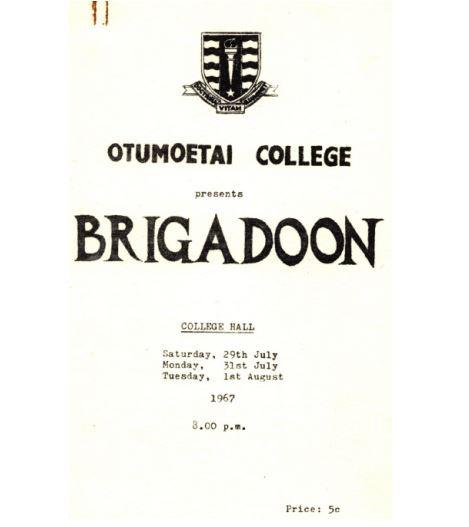
5 minute read
NCEA Exam Preparation - Carolyn Dwight
NCEA Exam Preparation
Have you ever read a whole page of something and then thought, “I can’t remember a thing I just read”? That’s why just “reading through your notes” is a really poor way of studying. Not much better than sleeping with your notes under your pillow! So what’s the answer?
1. It’s called active reading. • Go over all your notes/handouts and annotate them, scribble notes in the margin, make links, draw arrows, draw little pictures/symbols in the margin, circle, underline, highlight. • Reading without a pen in your hand is a waste of time, you’ll retain NOTHING. If you have material/ textbooks you are not allowed to write on, make notes from it on paper.
2. THEN RETRIEVAL – the word retrieve means to bring something back – to go hunt in the back of your mind and bring it to the front. Here’s how: • After you’ve read through and highlighted some notes/handouts/part of a textbook, put it face down and see what you can recall. o You can scribble it down – this is called a brain dump. o Or you can say it OUT LOUD. • Then go back and check which of the highlights/ main points you missed – and focus on these a bit more. • Convert all your notes into summaries – either bullet point or mind map style: o Wherever you can, add colours and little pictures/ symbols. o RETRIEVE these study notes – try replicating them from memory, then check what you missed.
3. Memorise quotes (English) • Make a recording (voice recorder on cellphone – download an app if you need to) of quotes, or other important material, and listen to it while you are in the car/tidying your room/walking to school… • Write the quote at the top of a piece of A4 scrap paper, fold over, rewrite from memory, unfold, check, fold again and repeat from memory until you are getting it right
4. Re-read the short stories/poems/novel (written text), rent the film (visual text) from itunes or youtube (English)
Caroline Dwight
5. Use a revision Specialist Classroom book - these books Teacher are great for contentheavy subjects like maths/science etc – not so good for English.
6. If you do practice maths exercises, MARK THEM so you know where you are going wrong.
7. Make up mnemonics to remember things e.g ROYGBIV (colours of the rainbow), Mark’s very extravagant mother just sent us ninety parakeets (order of the planets)
8. Do extra practice exams/write practice essays/ answers – ask a teacher to mark them.
9. Or – just write a plan for a practice essay/ answer – then RETRIEVE IT • You can view past papers and real student answers here: http://www.nzqa.govt.nz/qualifications • For Unfamiliar text (English) – the resource booklets don’t show the texts as they are copyright. See if your teacher can loan you some. • Here’s a link to the student exam hub: https:// www.nzqa.govt.nz/ncea/ncea/
10. Visit http://www.studyit.org.nz/ This is great for content heavy subjects (only so-so for English) it’s the online version of a revision book and it’s free. It’s NZ based.
11. No Brain Too Small - is a New Zealand specific science website. http://www.nobraintoosmall.co.nz/
Exam Technique
Skim-read the whole exam paper very briefly first (2-3 minutes).
Keep track of time: you can’t bring in a watch but there will be clocks on the wall – E.g. English: 3 standards worth equal credits in 3 hours = one hour each.
Start with the standard you are best at/the easiest one/the one with the best essay topic.
DON’T run out of time. BUT: if you do run short, this way you are writing drivel about your least confident standard, rather than being about to launch into the perfect essay topic on your strongest standard that was an almost guaranteed excellence.
English: If pushed for time, do Unfamiliar Text last. It is possible to pass this without finishing e.g. by doing a thorough job of just (any) two texts OR a briefer job of all three with a view to coming back and writing more if you get time. Consider doing the poem last. (Does not apply to Year 13 English)
When you have chosen an essay topic, underline important words in the instructions/topic.
Spend a few minutes writing a quick plan for your essay.
Remember, you are allowed to write on any part of the exam papers, including the resource booklet for Unfamiliar Text (English). So, when you read the passages, do ACTIVE READING with your pen – underline things etc
Prior to the exam
1. Get a good night’s sleep. 2. Eat a good breakfast or lunch – with some protein in it (meat/eggs/fish/cheese.) 3. Expect some stress, this is normal. Think positive.
12 EXCITING WAYS TO STAY MOTIVATED
FILL YOURSELF WITH POSITIVITY If you are struggling with motivation, control your threads of negative thoughts and start thinking about your ultimate dream.
MAKE YOUR JOURNEY CLEAR AND CONCISE To create a clear vision, it is pivotal to define your goals. Moreover, it’s a crucial stepping stone between planning and execution which further helps to put your thoughts into the action flow.
BE ORGANISED An uncluttered environment can increase your chances of efficiency and productivity.
BREAK BIGGER GOALS INTO SMALLER ONES Instead of jumping right into something big, you should start small by breaking goals into short-term and smaller tasks.
DO NOT GET DISTRACTED
PERSISTENCE IS THE KEY Putting yourself in the well of hard work is essential for the achievement of your goals. Being persistent is the only mantra for success.
PAINT A PICTURE OF YOUR SUCCESS IN YOUR MIND
Visualise your success as it can help you keep yourself focused and motivated. By painting a picture of your journey in your mind, even setbacks seem nothing.
AVOID PROCRASTINATION
Don’t waste your time or make excuses justifying your act of procrastination. The right time is NOW.
REWARD YOURSELF It is of utmost importance to appreciate yourself after completion of the dreaded tasks. Since motivation starts from within, devise a system of rewards for yourself.
FIND AN INSPIRATION You can stay motivated by reading or listening to stories about successful people who have built big businesses from scratch.
CONSUME CHOCOLATE Chocolate contains a neurotransmitter called serotonin which will help promote calmness. Apart from this, it also releases dopamine which will stabilise your heart rate and boost motivation.
ENJOY THE PROCESS If you want to stay on the road of motivation, make your journey full of exciting adventures. Find different ways to include fun into your journey.










